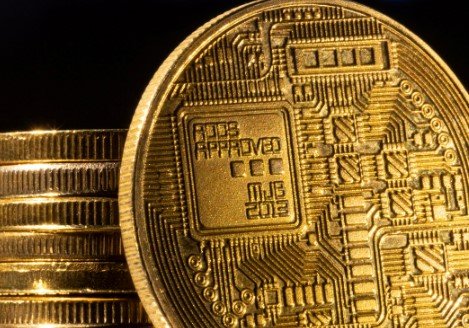Coinbase Responds to Customer Backlash Over Account Restrictions and VPN Use
Over the weekend, a flurry of complaints flooded social media as Coinbase users reported account restrictions on the exchange. These frustrations prompted Coinbase to address the situation with a multi-tweet thread from its support account, attempting to calm users and clarify the reasons behind the sudden spike in issues.
In its response, Coinbase first took a defensive tone, suggesting that much of the uproar stemmed from “FUD/misinformation” (fear, uncertainty, and doubt) surrounding the restrictions. However, this claim quickly drew backlash, as X crypto fact-checkers swiftly called out the company for dismissing legitimate concerns. Regardless of the tone, Coinbase’s explanation ultimately pointed to a surge in account activity after the recent election of pro-crypto candidate Donald Trump. This influx, according to Coinbase, led to a significant uptick in fraud attempts, resulting in account restrictions as part of the company’s fraud prevention efforts.
“Along with this surge, as is typical with surges, we’ve seen a 2-3x increase in fraudulent attempts,” Coinbase tweeted. The company went on to boast that its fraud prevention systems had successfully saved “tens of millions” in losses for its customers, positioning itself as vigilant and proactive in protecting its user base.
Surge in New and Reactivated Accounts Drives Fraud Prevention Measures
Coinbase attributed the rise in account restrictions to two key factors: a spike in new users and the reactivation of old accounts. This surge in activity, especially following the election, led to an increased risk of fraud attempts targeting the platform. Coinbase’s fraud prevention systems, according to the exchange, were working overtime to combat these fraudulent actions.
But while the company claimed its systems were doing their job, many customers felt they were paying the price for this increased vigilance. A number of users took to social media, frustrated by the unexpected restrictions on their accounts, with no clear indication of when or if they would regain full access.
The company did attempt to reassure its customers, but the response seemed to be met with mixed reactions. While Coinbase has stated that it is committed to ensuring user security, critics have pointed out that these restrictions could harm users who have done nothing wrong. With the increased regulatory scrutiny in the crypto world, Coinbase’s reputation for security is becoming increasingly crucial.
Controversy Over VPN Use on Coinbase
Adding to the tension, Coinbase’s Product Director, Scott Shapiro, sparked outrage with a tweet suggesting that users should refrain from accessing the platform using VPNs (Virtual Private Networks). “PSA: Don’t use a VPN to access Coinbase,” Shapiro wrote, explaining that VPNs are often used by attackers to conceal their identity and evade detection.
The tweet, which was meant to clarify security issues on the platform, was seen by many as problematic. Critics quickly pointed out that the message implied that users would need to compromise their personal security in order to access the platform. Many users rely on VPNs to protect their privacy online, and the idea that they would need to abandon this protection to use Coinbase rubbed people the wrong way.
Shapiro attempted to backtrack on his comments by clarifying that Coinbase respects privacy and that the company was working to improve the user experience. “Privacy is a fundamental right,” he tweeted in a follow-up message, acknowledging that his initial tweet was “poorly worded” and reinforcing the company’s commitment to ensuring a secure and private platform for its users.
Despite his clarification, many users remained frustrated, particularly given the backdrop of increased cyberattacks against Coinbase customers in recent months. The platform has been the target of several high-profile incidents, with hackers using various methods to breach accounts. This raised concerns about whether Coinbase’s security measures were truly up to the task.
Community Pushback and Concerns Over Security
The controversy over VPN use came just days after a prominent security researcher, @pcaversaccio, criticized Coinbase’s stance on privacy and security. The researcher pointed to a series of cyberattacks that had targeted Coinbase users, noting that these attacks, often carried out by “Skiddies” (hackers using pre-written scripts), had become more frequent.
Given the ongoing security threats, some users were deeply concerned that Coinbase’s handling of security was not as robust as it should be. “By restricting accounts and dismissing security measures like VPNs, Coinbase risks alienating its most privacy-conscious users,” @pcaversaccio wrote in a scathing critique. This sentiment has resonated with a segment of the crypto community that values security above all else, including ease of access to exchanges.
In an industry where security breaches have far-reaching consequences, many believe Coinbase’s actions could have long-term ramifications for its customer trust and loyalty. Whether or not the platform will be able to restore its image remains to be seen, especially with the continuing challenges it faces in balancing privacy concerns, fraud prevention, and user experience.


 Bitcoin
Bitcoin  Ethereum
Ethereum  Solana
Solana  Cardano
Cardano  Chainlink
Chainlink  Avalanche
Avalanche  Sui
Sui  Polkadot
Polkadot  Mantle
Mantle  Bittensor
Bittensor  NEAR Protocol
NEAR Protocol  Internet Computer
Internet Computer  Cosmos Hub
Cosmos Hub  Algorand
Algorand  Filecoin
Filecoin  Aptos
Aptos  Render
Render  Arbitrum
Arbitrum  Jupiter
Jupiter  Stacks
Stacks  Sei
Sei  Injective
Injective  Celestia
Celestia  Pyth Network
Pyth Network  The Graph
The Graph  Optimism
Optimism  THORChain
THORChain  Immutable
Immutable  MultiversX
MultiversX  Akash Network
Akash Network  dYdX
dYdX  Flow
Flow  Illuvium
Illuvium  Kujira
Kujira  Manta Network
Manta Network  Metis
Metis  Dymension
Dymension